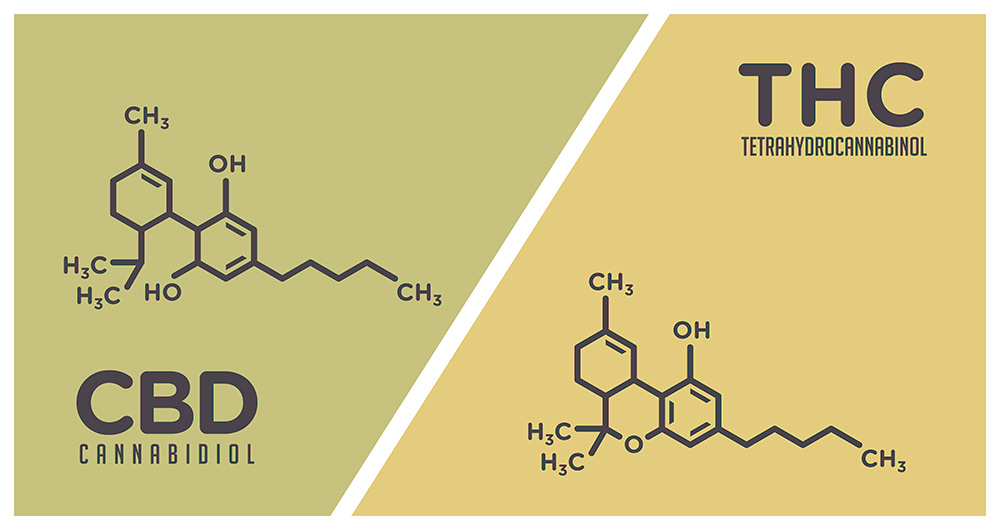Cannabis just can’t seem to stay out of the news, but despite the attention, misperception still clouds around the plant. Many hear words like “hemp” and “marijuana” and “cannabis” and assume they are all the same thing. Others argue about potential health benefits of each. From those advocating a particular valuable component of cannabis comes the production of hemp oil.
To understand the potential value of hemp oil, one must understand the basics of one important system in our bodies: the endocannabinoid system. This is a fundamental system within our bodies that helps regulate cell activity. It influences things like healing, mental health, neurogenesis, cognition, the immune system and memory. The endocannabinoid system is also important for regulating pain and inflammation.
If we dissect the word “endocannabinoid,” we find the word “cannabinoid.” Cannabinoids are special fats that interact with the central nervous system to promote homeostatis, which is when there is balance between the many systems of the body. Most cells have cannabinoid receptors, and endocannabinoids are important to regulate cell activity, including for things like movement, digestion, bone health, neurological processes, immunological health and more.
Endocannabinoid Deficiency
Without these important fats, important processes in the body can start to fail. Endocannabinoid deficiency has been tied to arthritis, gastrointestinal inflammation, cancer, and a variety of neurological conditions, including Alzheimer’s.
Where Do We Get Cannabinoids?
The “endo” in “endocannabinoids” means that the body naturally produces them itself. But we still consume cannabinoids from external sources, and this can be important for our body’s wellbeing. Our first exposure to external cannabinoids was as babies, as breast milk is rich with them. There are also phytocannabinoids, the “phyto” meaning they come from plants. Flax, salvia and cannabis have phytocannabinoids, for example.
Cannabis has an important cannabinoid called cannabidiol (CBD), which research shows has medicinal promise with anti-spasmodic, anti-epileptic, anti-anxiety, and anti-psychotic properties. CBD oil also has excellent antioxidant quality, even greater than vitamin E and C, some research shows. It is being researched for a variety of uses, including treatments for opioid addiction , seizures, and more.
Both marijuana and hemp, which are varieties of cannabis, have CBD. Hemp’s CBD content is in fact one of its defining characteristics that separates it from marijuana. It has more CBD than THC (Tetrahydrocannabinol), which is the most famous cannabinoid found in cannabis. Marijuana, hemp’s cousin under the cannabis family, has more THC than CBD.
THC is the ingredient that gets users high, and it’s also the reason why the medical community is hesitant to use marijuana for medicine. CBD, which is not psychoactive, actually reduces the psychoactive effects of THC. So what do you do if you want the benefits of CBD, without the high of THC? The starting point is hemp, versus marijuana.
Proponents of CBD’s health benefits have found ways to extract CBD from industrial hemp, which is legal everywhere in the United States. CBD hemp oil is legal everywhere, whereas cannabis oil has strict regulations in many states, including Utah.
Is It Legal To Buy?
As hemp oil is derived from breeds of the cannabis plant, some may wonder if purchasing CBD hemp oil is legal everywhere. As mentioned above, CBD hemp oil is legal everywhere as a dietary supplement. It carries no psychoactive ingredients, meaning you won’t get a high from it, and it is widely used for its therapeutic value.
By definition, industrial hemp is any part of the cannabis plant that has less than .3 percent concentration of THC. Oil derived from industrial hemp is sold lawfully.
What About Quality?
Those looking to purchase this oil should consider quality of the product and how it was extracted, as dietary supplements are loosely regulated, and quality can vary greatly.
It is possible to purchase synthetic cannabinoids, but research shows that synthetic versions lose many of the valuable properties that natural oils have. Make sure you know the source of the CBD in the product you use, and study the label to understand the product’s CBD content.
According to a 2017 study published in The Journal of the American Medical Association (JAMA), only 31% of the products they tested were labeled accurately. Some products had more CBD than listed, some had less. Vaporization liquid had the highest error rate. About 21 percent of the products contained THC, with concentrations high enough, in some cases, to intoxicate a child.
Read More:
Can Using Cannabis Lead to Symptoms of Depression and Anxiety?
